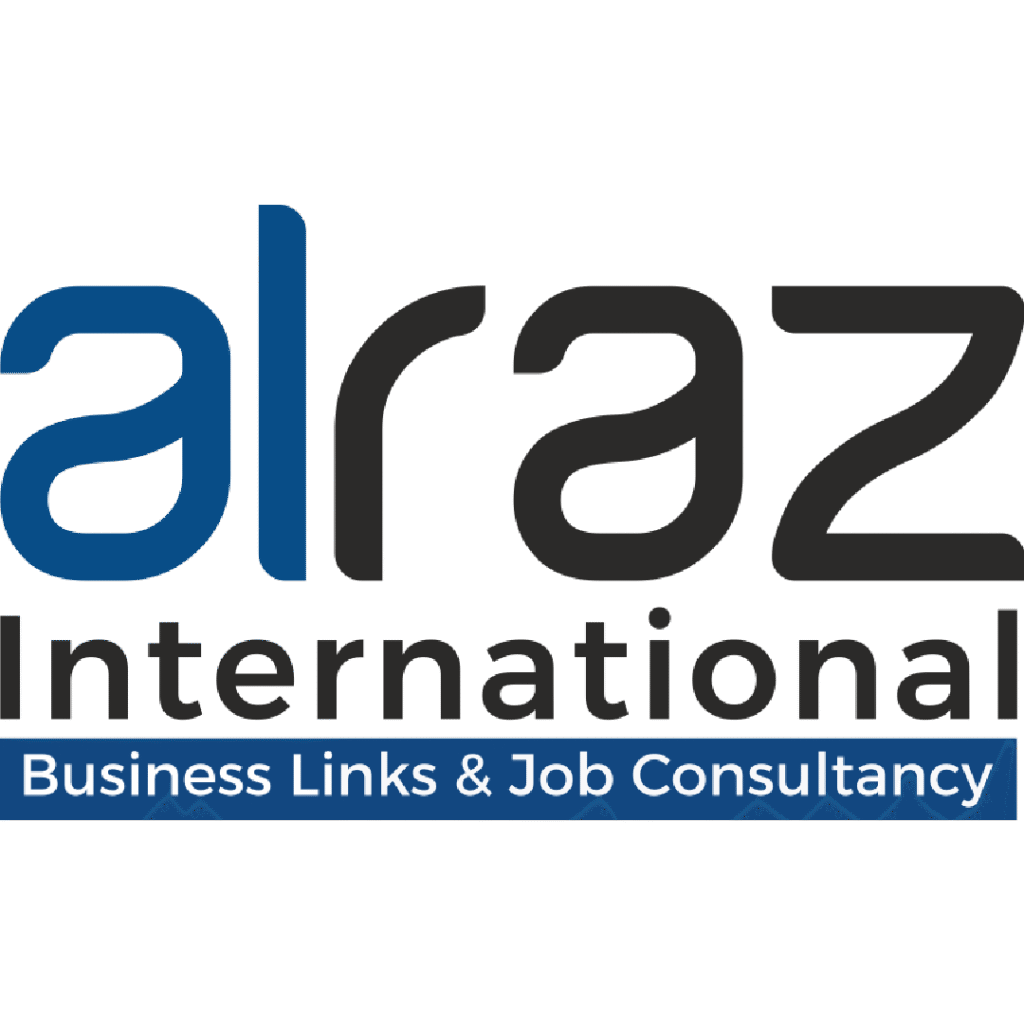The Role of HR Consultancy has become increasingly pivotal in today’s dynamic business environment. As companies strive to remain competitive, scalable, and compliant, HR consultants offer tailored solutions that streamline operations, attract top talent, and drive sustainable growth. Gone are the days when human resources was limited to just payroll or employee onboarding.In today’s business landscape, HR consultancy plays a strategic role in driving organizational success.
What is HR Consultancy?

HR consultancy refers to specialized services offered by experts in human resource management. These services range from recruitment and employee training to compliance management, performance optimization, and strategic workforce planning. Companies—especially small and medium-sized enterprises (SMEs)—often turn to HR consultants when they lack the in-house expertise or bandwidth to manage human capital effectively.
Understanding HR Consultancy
HR consultancy refers to professional services provided by external experts who specialize in human resources management. These consultants assist organizations with a variety of HR functions, including recruitment, policy development, employee relations, training, performance management, and compliance with labor laws. Unlike in-house HR teams, HR consultants bring a broader perspective and industry-specific knowledge, allowing companies to implement best practices and make informed decisions.
The Role of HR Consultancy in Business Operations
HR consultancy plays a much broader role than just assisting with recruitment.It encompasses strategic guidance that helps businesses enhance productivity, minimize legal risks, and create a sustainable work culture. Here are several critical areas where HR consultants add value:
1. Talent Acquisition and Recruitment
Attracting the right talent is essential for accelerating business growth. HR consultants use advanced recruitment strategies, sourcing tools, and screening methods to identify top candidates. They also help build employer branding, ensuring your company attracts high-quality talent. The role of HR consultancy in this context is to streamline hiring processes while improving the overall quality of hires.
2. HR Policy Development
Formal HR policies are often missing in many small and medium-sized businesses. HR consultants help craft employee handbooks, codes of conduct, and HR procedures tailored to a company’s specific culture and needs. Clear policies not only set expectations but also protect the business legally.
3. Legal Compliance and Risk Management
One of the most critical roles of HR consultancy is helping businesses stay compliant with local, state, and national labor laws. This includes everything from wage and hour regulations to health and safety requirements.Non-compliance with labor laws can result in serious legal and financial consequences. HR consultants help align your policies, contracts, and employee practices with legal standards to mitigate these risks.
4. Performance Management and Employee Engagement
Engaged employees are more productive, loyal, and motivated. HR consultants design performance appraisal systems, feedback mechanisms, and incentive structures that boost morale and enhance efficiency. By aligning individual goals with organizational objectives, they foster a high-performance culture.
5. Training and Development
Another important role of HR consultancy is identifying skill gaps and delivering training solutions. Whether it’s leadership development, soft skills training, or technical upskilling, HR consultants design custom training programs to enhance team performance and future-readiness.
6. Organizational Restructuring and Change Management
When companies go through mergers, acquisitions, or internal restructuring, HR consultants guide leaders through the transition. They manage role changes, communication plans, and team realignment strategies to ensure minimal disruption and maximum acceptance from employees.
Benefits of Hiring an HR Consultancy
Now that we’ve explored the role of HR consultancy, let’s look at why businesses choose to hire them:
Expertise on Demand: Access to seasoned HR professionals without having to hire full-time staff.
Cost-Effective: More economical than maintaining an entire HR department, especially for startups and small businesses.
Time-Saving: Frees business owners and managers from time-consuming HR tasks.
Risk Reduction: Ensures legal compliance and reduces the likelihood of costly mistakes.
Scalability: HR consultants can support businesses through different growth stages and changing workforce needs.
HR Consultancy vs. In-House HR: What’s the Difference?
While both serve essential functions, there are clear distinctions. In-house HR teams handle daily operations and employee interactions, whereas HR consultancies provide strategic direction and project-based support. The role of HR consultancy is often more analytical, data-driven, and future-focused, providing insights that help leadership make informed decisions.
Digital Transformation and the Role of HR Consultancy
Modern HR consultants leverage technology to enhance their services. They use HR software, data analytics tools, and AI-based platforms to automate processes and deliver insights. Whether it’s digital recruitment, remote employee engagement, or virtual training, the role of HR consultancy now includes guiding digital transformation in HR practices.
Choosing the Right HR Consultant
Not all HR consultancies are the same. When selecting a consultancy, consider:
Industry Expertise: Are they familiar with the specific challenges and needs of your sector?
Reputation and Reviews: Are they known for delivering measurable results?
Service Range: Do they offer end-to-end HR solutions?
Scalability: Can they grow with your business?
Technology Usage: Are they leveraging modern tools for better efficiency?
Why the Role of HR Consultancy is Critical Today

In an era where the workforce is more diverse, regulations are more complex, and employee expectations are evolving, the Role of HR Consultancy becomes even more relevant. Here’s why:
1. Strategic Recruitment and Talent Acquisition
Hiring the right talent at the right moment is crucial to a company’s success or failure.HR consultants bring market insight, screening tools, and hiring strategies that ensure businesses attract skilled candidates who align with company values and goals.
2. Compliance and Risk Management
Constantly evolving labor laws and regulations make compliance a significant challenge for businesses.HR consultancy services help businesses avoid legal pitfalls by managing contracts, policies, and workplace safety standards, reducing the risk of costly penalties or lawsuits.
3. Employee Retention and Engagement
Excessive employee turnover quietly undermines business growth and stability.HR consultants design retention strategies through performance management systems, reward programs, feedback loops, and workplace culture enhancements. Employees who are engaged tend to be more productive, committed, and aligned with the company’s objectives
4. Training and Development
Another key area where the Role of HR Consultancy stands out is employee development. Consultants assess skill gaps, create learning paths, and deliver training programs that boost efficiency and prepare teams for future roles.
5. Organizational Restructuring
During times of expansion, merger, or downsizing, HR consultants guide companies through transitions. They manage change with minimal disruption, helping redefine roles, re-align goals, and rebuild morale.
6. Cost Efficiency and Focus
Outsourcing HR functions to a consultancy enables businesses to focus on their core operations. It’s more cost-effective than maintaining a full-fledged HR department, especially for startups or growing businesses that need flexibility.
The Expanding Role of HR Consultancy
Traditionally, human resources were seen as an administrative function, focused mainly on hiring, payroll, and employee management.The role of HR consultancy has significantly broadened in recent years. Today, HR consultants act as strategic partners who advise businesses on organizational design, leadership development, workforce planning, and digital HR transformation.
Their expertise goes far beyond recruitment. HR consultants help businesses create systems that attract, develop, and retain talent while aligning workforce strategies with business goals. This makes them essential, especially in a time when agility, adaptability, and employee engagement are more important than ever.
Addressing Modern Workforce Challenges
Modern businesses face a wide array of challenges when it comes to managing their human resources. These include:
Talent shortages and skill gaps
High employee turnover
Remote and hybrid work management
Diversity, equity, and inclusion goals
Frequent changes in employment laws and labor regulations
The role of HR consultancy is to help businesses tackle these issues proactively. By conducting workforce audits, revising outdated HR policies, and developing people strategies, consultants empower companies to stay competitive and compliant.
Strategic Recruitment and Talent Management
Hiring the right people has always been essential to business success, but today, it’s more strategic than ever. Companies not only need individuals with technical skills but also those who align with their culture and long-term vision.
HR consultancies provide the tools and insights needed to streamline recruitment processes. From job analysis and employer branding to talent mapping and candidate screening, they improve both the quality and speed of hiring.
The role of HR consultancy here is especially valuable for small and medium-sized enterprises (SMEs) that may not have the resources or experience to manage end-to-end recruitment effectively.
Enhancing Legal Compliance and Risk Management
Labor laws and employment regulations are continually evolving. Whether it’s minimum wage changes, employee benefits compliance, or workplace safety standards, staying updated is essential to avoid legal trouble.
Non-compliance can lead to serious consequences such as lawsuits, penalties, and reputational damage. HR consultants are well-versed in local and international employment laws and ensure that policies, contracts, and workplace practices adhere to legal standards. The impact of HR consultancy in mitigating legal and operational risks is invaluable.
Performance Management and Employee Engagement
Engaged employees are more productive, innovative, and loyal. However, fostering engagement takes more than occasional team-building events. It requires structured performance management, meaningful feedback systems, and recognition strategies.
HR consultants help businesses design and implement effective performance appraisal systems that motivate employees and align them with organizational goals. They also offer solutions to boost engagement, such as leadership training, career development programs, and culture assessments.
Here, the role of HR consultancy is to ensure that performance management is not just a once-a-year event, but a continuous process that drives business success.
Learning and Development Strategies
In the knowledge economy, continuous learning is a competitive advantage. Companies must invest in upskilling their workforce to keep pace with industry changes and innovation.
HR consultants evaluate organizational needs and create training programs customized for specific roles and departments. From soft skills development to technical workshops, they create strategies that enhance workforce capabilities and readiness.
The role of HR consultancy in employee development helps businesses retain top talent and improve overall productivity.
Supporting Change and Growth
Business growth often comes with structural or cultural changes—whether it’s entering new markets, acquiring another company, or restructuring internal departments. Such transitions can be disruptive if not managed properly.
HR consultants are experts in change management. They assist leadership teams in communicating changes effectively, realigning job roles, and maintaining morale during uncertain times. Their strategic input ensures that transitions are smooth and that the workforce stays aligned with the company’s evolving goals.
The role of HR consultancy during periods of change is to act as a stabilizing force that supports both leaders and employees.
Digital Transformation and Tech-Driven HR
As technology continues to transform every aspect of business, human resources is no exception.HR software, AI-driven recruitment tools, and data analytics have become essential components of efficient HR operations.
HR consultants guide companies in choosing the right technology stack for their needs. Whether it’s automating payroll, managing remote teams, or analyzing employee performance metrics, consultants ensure that businesses stay ahead of the curve.
The modern role of HR consultancy involves integrating digital solutions into the HR function to boost productivity, accuracy, and scalability.
Tailored Solutions for Every Business
Each company is unique, shaped by its own goals, challenges, and culture. One of the most valuable aspects of HR consultancy is the ability to offer customized solutions. Unlike generic internal HR practices, consultants provide insights based on industry benchmarks, market trends, and best practices.
Whether you’re a startup in need of foundational HR policies or a growing business looking to scale responsibly, HR consultants bring tailored expertise that aligns with your business stage and vision.
HR Consultancy in the Digital Age

In today’s tech-driven world, HR consultancies leverage digital tools like AI-powered recruitment software, cloud-based HR platforms, and data analytics to offer smarter, faster, and more accurate solutions. This digital evolution is a game-changer for how HR consultants analyze trends, manage people, and report performance metrics.
Furthermore, remote work and hybrid models have created new challenges in workforce management. HR consultants help businesses adapt policies, maintain remote engagement, and implement digital collaboration strategies effectively.Learn more:
The Expanding Role of HR Consultancy
The role of HR consultancy has expanded far beyond recruitment and compliance. Modern HR consultants provide comprehensive services that address workforce planning, employee engagement, talent development, and digital transformation. Their role is pivotal in aligning human capital strategies with overall business objectives, ensuring companies remain agile in an ever-changing marketplace.
Traditionally, HR consultancies focused on paperwork, policy creation, and basic staffing needs. However, today’s HR consultants act as advisors who use data-driven insights and advanced technologies to optimize workforce performance and reduce risks. From designing custom training programs to implementing AI-powered recruitment tools, their contributions are vital in shaping the future of work.
Digital Transformation in HR Consultancy
A major force redefining the role of HR consultancy is digital transformation. Businesses are adopting digital tools and platforms to streamline HR processes, improve decision-making, and enhance employee experiences. HR consultants are at the forefront of this shift, helping organizations select, implement, and manage technology solutions that boost efficiency and effectiveness.
Some of the essential digital tools embraced by HR consultancies include:
HR Management Systems (HRMS): Centralized platforms that automate payroll, attendance, benefits, and performance management.
AI-Based Recruitment Tools: Artificial intelligence accelerates candidate screening, reduces bias, and improves hiring quality.
Employee Engagement Software: Digital platforms that foster communication, feedback, and recognition among employees.
Data Analytics: Advanced analytics enable HR consultants to identify trends, forecast workforce needs, and measure training outcomes.
By integrating these technologies, HR consultancies help companies not only save time and costs but also make informed decisions that drive better business results.
Strategic Workforce Planning and Talent Management
The role of HR consultancy now includes strategic workforce planning, which is crucial in today’s dynamic business environment. HR consultants assess an organization’s current talent landscape and future needs, identifying skill gaps and growth opportunities. This strategic approach ensures that companies have the right people in the right roles at the right time.
Talent management, including recruitment, development, and retention, is another critical area where HR consultancy plays a transformative role. With digital tools, HR consultants can design personalized learning and development programs tailored to specific roles and career paths. These initiatives not only enhance employee skills but also boost morale and reduce turnover.
Moreover, the rise of remote work and hybrid models has made talent management more complex. HR consultancies guide organizations in creating flexible work policies, managing virtual teams, and maintaining a strong company culture despite physical distances.
Mitigating Legal and Operational Risks
In an increasingly regulated business landscape, the role of HR consultancy in reducing legal and operational risks cannot be overstated. Compliance with labor laws, data privacy regulations, and workplace safety standards requires constant vigilance and expertise.
HR consultants help organizations stay updated with changing legislation and implement best practices to avoid costly penalties or litigation. They conduct audits, develop compliant policies, and provide training on sensitive topics such as harassment prevention and diversity inclusion.
Furthermore, by leveraging data analytics, HR consultancies can identify potential risk areas proactively and recommend solutions to mitigate them. This proactive risk management safeguards companies’ reputations and financial health.
Enhancing Employee Experience and Engagement
Today’s workforce demands more than a paycheck—they look for meaningful work, opportunities for growth, and a positive workplace culture. Recognizing this, the role of HR consultancy now prominently includes enhancing employee experience and engagement.
Using employee feedback tools and pulse surveys, HR consultants gather insights into workforce sentiment and identify areas for improvement. They then design initiatives that foster collaboration, recognition, and well-being.
Digital platforms enable real-time communication and personalized support, helping employees feel connected and valued regardless of their location. These efforts translate into higher productivity, innovation, and loyalty.
Challenges Faced by HR Consultancies in the Digital Age
Although technology provides significant advantages, it also presents challenges.The role of HR consultancy is evolving to address issues such as data security, technology adoption resistance, and maintaining the human touch in automated processes.
HR consultants must balance leveraging automation with preserving empathy and personal connection—critical components of effective HR management. They also need to continuously update their skills to stay current with emerging technologies and best practices.
Moreover, organizations may face budget constraints or cultural barriers in implementing digital HR solutions. Here, HR consultancies play a vital advisory role, customizing strategies that fit each company’s unique needs and resources.
The Future of HR Consultancy
Looking ahead, the role of HR consultancy will continue to grow in importance as businesses embrace more sophisticated digital tools and place greater emphasis on human capital as a competitive advantage.
Emerging trends such as people analytics, AI-driven talent marketplaces, virtual reality training, and personalized employee wellness programs will further transform how HR services are delivered.
HR consultants who combine technological expertise with strategic insight and emotional intelligence will be indispensable partners for organizations striving to thrive in the digital age.
Industry-Specific HR Expertise

Many HR consultancies specialize in sectors such as healthcare, IT, manufacturing, and education. This industry-specific expertise adds immense value, as consultants understand unique regulatory requirements, workforce dynamics, and performance benchmarks. By aligning HR strategies with sector-specific demands, consultancies play a crucial role in driving business growth.
Small Business and Startups: A Growing Need

For startups and small businesses, hiring a full-time HR team is often not feasible. The Role of HR Consultancy becomes essential here, providing access to HR expertise without the long-term financial commitment. Whether it’s developing an HR policy handbook, setting up an employee evaluation system, or handling recruitment, consultants offer scalable solutions tailored to business stages.
How to Choose the Right HR Consultancy

Choosing the right partner is crucial. Here are some tips:
Evaluate experience in your industry.
Check for certifications and regulatory knowledge.
Look for scalability, especially if your business is growing.
Assess their digital tools and methodologies.
Read client reviews or request references.
An effective HR consultancy should embody the role of HR consultancy as a seamless extension of your internal team, offering strategic insights, prompt communication, and dependable support to drive organizational success.
Conclusion
The Role of HR Consultancy in modern business growth is no longer optional—it’s a competitive advantage. Whether you’re looking to streamline hiring, build a better culture, stay compliant, or drive performance, a professional HR consultancy brings the expertise and flexibility your business needs.
In a rapidly evolving world, the role of HR consultancy goes beyond managing people—it involves empowering businesses to thrive through smarter, data-driven workforce strategies. Investing in HR consultancy isn’t just a human resources decision; it’s a strategic move to unlock the full potential of your people and your organization.

